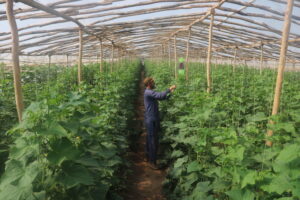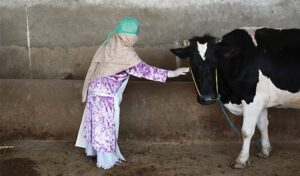KABUL (SW) — The Asian Development Bank has predicted Afghanistan’s economic growth to recover this year and accelerate next year after a sharp decline in 2020 from the coronavirus disease (COVID-19) pandemic and continued violence and instability.
In its Asian Development Outlook (ADO) 2021, ADB forecasts Afghanistan’s gross domestic product (GDP) growth to rebound to 3.0% in 2021, rising to 4.0% in 2022 as business activity and market sentiment normalize. GDP contracted by an estimated 5.0% in 2020 as COVID-19 containment measures exacerbated the economic impact of persistent violence and political instability. ADO is ADB’s flagship annual economic publication.
“Afghanistan’s economy experienced unprecedented disruption in 2020 due to COVID-19 pandemic, political instability and continued violence, which cut remittances, trade, and revenue,” said ADB Country Director for Afghanistan Narendra Singru. “With a successful COVID-19 vaccine rollout and post-pandemic recovery, the country should be on track to achieve economic growth this year and in 2022 as business activity and market sentiment normalize.”
According to the report, inflation more than doubled from 2.3% in 2019 to 5.6% in 2020 driven by higher food prices. Food price inflation in 2020 was estimated at 10% with the highest spike recorded in April, when border closure and panic buying propelled it to 16.6%. Inflation is projected to moderate to 5.0% in 2021 and 4.0% in 2022 as food supplies improve.
However, risks remain, including implementing vaccinations in remote and insecure areas, conflict, criminality, corruption, political instability, and broader social fragility. If unaddressed, these could weigh heavily on the economy and impede recovery.
Supporting the recovery of micro, small, and medium-sized enterprises (MSMEs) hard hit by the pandemic is pivotal to safeguarding workers’ incomes and livelihoods, according to the report. Before the pandemic, MSMEs were estimated to provide nearly 1.6 million service and industry jobs. The government approved a 2-year support package worth $295 million in October 2020 to improve business conditions and implemented countercyclical measures that include support for MSMEs.
To improve the business environment, Afghanistan should facilitate MSME access to markets by developing infrastructure, improving security, combating corruption, simplifying regulation, strengthening property rights and contract enforcement, and promoting innovation and better labor skills. Increasing access to credit and further expanding the formal bank sector is also crucial.
ADB is committed to achieving a prosperous, inclusive, resilient, and sustainable Asia and the Pacific, while sustaining its efforts to eradicate extreme poverty. Established in 1966, it is owned by 68 members—49 from the region.
ENDS










